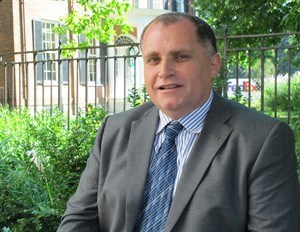
Lawyer Rocco Galati is seen outside Federal Court in Toronto on Wednesday, Aug. 8, 2012, after testifying in the national-security case of Mohamed Mahjoub. Galati was stunned to get confirmation of his long-held suspicions that Canada's spy agency had been listening in on his calls with his clients. THE CANADIAN PRESS/Colin Perkel
August 08, 2012 - 1:26 PM
TORONTO - A lawyer who represented two men branded as threats to national security said Wednesday he was stunned to discover confirmation of his long-held suspicions that government agents had listened in on his phone calls with his clients.
Federal lawyers had heaped scorn on him when he first raised the issue a decade ago, Rocco Galati said, and it was only recently he learned he'd been right all along.
"I couldn't believe the degree to which the judicial process had been corrupted," Galati told The Canadian Press outside Federal Court.
"The most offensive part of it was being ridiculed by government lawyers pretending that I was on some wild speculation," he said.
From March 1999 to the end of 2003, the Toronto lawyer acted for two Egyptians slapped separately with national security certificates: Mohamed Mahjoub and Mahmoud Jaballah.
The government deemed the men terrorist threats, with much of its case based on secret evidence they were not allowed to see.
A dozen years later, both men — in prison or under house arrest despite facing no charges in Canada — are still fighting to have their certificates quashed.
In 2008, Canada's spy agency admitted listening in on Mahjoub's calls with his lawyers, but only as a way to monitor his bail conditions, one of which included his consent to having his phone tapped.
The revelation prompted outrage from his lawyers, who said Mahjoub had never intended to waive solicitor-client privilege — considered judicially sacrosanct. A judge quickly ordered an end to the practice.
Mahjoub's current lawyers have since gained access to information that shows the Canadian Security Intelligence Service and the Canada Border Services Agency had been intercepting communications between him and his lawyers, including Galati, from the get-go.
"When you intercept a lawyer's communications with his clients, you might as well get rid of the judiciary because then the judiciary is no longer independent," Galati said.
In an affidavit filed with Federal Court hearing the Mahjoub case on Wednesday, Galati stated it was only in March this year that he saw spy agency admissions they had listened in and analyzed his communications with his clients.
"I did not know that Canadian government institutions such as CSIS and/or the CBSA would violate such a fundamental right as the right to confidential communications between a solicitor and his client," Galati states.
"I (also) have absolutely no faith that those conversations that are summarized are described honestly, accurately or completely owing to my experience as counsel in such cases."
After government wrangling over admissibility of the document, the affidavit was entered as an exhibit in the labyrinthine case that Mahjoub's supporters have called "Kafkaesque." Galati barely faced any questions about it, before being excused as a witness.
Blanchard has shown increasing impatience with government tactics in recent weeks which include putting up spy agency witnesses who then refuse or are unable to answer questions.
Galati said he asked CSIS in the Jaballah case at the time if his phones were under wiretap, but the agency refused to answer. That raised his suspicions but the court would not allow him to pursue the matter.
"If the government lawyers are ridiculing the idea, then I have to take their word as officers of the court that there were no wiretaps," he said.
"I raised the issue and I was ridiculed on the issue. That to me is more offensive than the actual wiretap."
Also Wednesday, the government lost yet another skirmish in the Mahjoub case: the Federal Court of Appeal ruled it will decide if it has jurisdiction to hear Mahjoub's appeal of a ruling earlier this year in which a judge refused to stay the proceedings against him, opting instead to fire 11 government lawyers.
News from © The Canadian Press, 2012